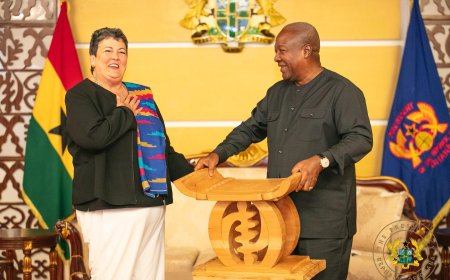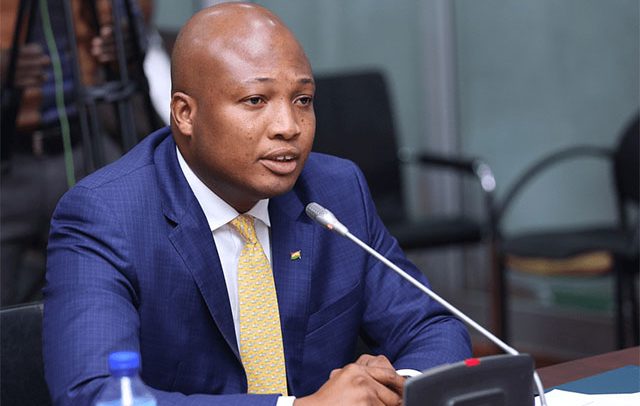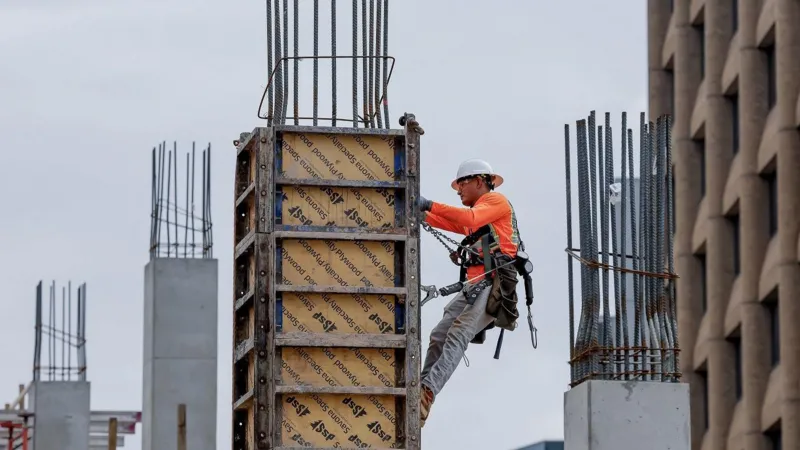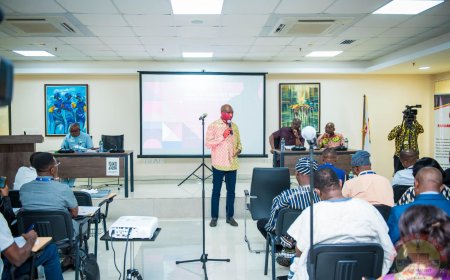SML offices raided with search warrants

Accra, Ghana - 10 june, 2025 - The Office of the Special Prosecutor has raided the offices of Strategic Mobilisation Ghana Limited (SML), according to exclusive information available to manassehazure.com.
The raid, which was carried out with search warrants, was supported by personnel from the National Security Secretariat.
Our sources indicate that the OSP is in the advanced stages of its investigation into the SML scandal and is interested in electronic information from the company’s servers.
The search has been carried out simultaneously at the Osu and Tema offices of SML.
SML, an offshoot of a timber company, was formed a month after the NPP administration took office in 2017. It has since been awarded a number of dubious contracts by the Ghana Revenue Authority (GRA) and the Ministry of Finance, under Ken Ofori-Atta.
The SML contract is one of the reasons the OSP has declared Ken Ofori-Atta wanted.
The GRA, in 2017, requested approval from the Public Procurement Authority (PPA) on three separate occasions to handpick SML for a contract using the single source procurement method.
On all three occasions, the PPA denied the approval, stating that the company did not have any track record in the services it was being engaged to perform.

PPA denied GRA the use of single source approval for the SML contract
The company changed its name from Strategic Mobilisation Enhancement Limited (SMEL) to SML, and the GRA proceeded to award contracts to the company through the single source procurement method, disregarding the denial of approval by the PPA.
As of December 2023, the government had paid more than $141 million to SML through its contracts.
In 2023, the Minister of Finance, Ken Ofori-Atta, directed that the scope of SML’s contract be expanded to cover the mining sectors and upstream petroleum sectors.
The contract, worth more than $100 million a year, was for an initial period of five years, subject to another five years’ renewal. It is worth more than $500 million for the first five years.
Under that deal, SML is entitled to a percentage of revenue from every litre of petroleum product one buys in Ghana. The company is also entitled to a fixed percentage of revenue from every barrel of oil produced in Ghana and a fixed percentage of revenue from every ounce of gold mined in Ghana.
It is, therefore, false the claim by SML and its defenders that the company is paid based on the recoveries it helps the government to make. The company has not made any recoveries since its operations.
SML’s shady dealings with the state were exposed in an extensive investigation by Evans Aziamor-Mensah, Adwoa Adobea-Owusu, and Manasseh Azure Awuni, all formerly with The Fourth Estate.
SML had made false claims about its services to the state and the savings that resulted from its operations. When the journalists confronted the company with evidence, it admitted the falsehood and proceeded to delete information from its website.
First, the company had claimed that it saved the nation GHS3 billion as a result of its operations. The story had been widely published by the Ghanaian newspaper and made it to the front page of the state-owned Daily Graphic.
The investigation proved that this was false. When confronted, the Managing Director of the Company, Christian Tetteh Sottie, admitted the information was false. He claimed the media got it wrong.
When reminded by Manasseh that the same information was on SML’s website on the morning of the interview, Mr. Sottie claimed, “I don’t know about any website matter.”
Pages 157 and 158 of the KPMG report, which was commissioned by Akufo-Addo after the investigative journalists’ report indicated that SML played no role in the increase in volumes or revenue in the downstream sector during its operations.
In fact, the report said SML’s measurements reported the lowest volumes within the period.
The company also made false claims about the services it rendered as part of its petroleum downstream contract.
On its website, SML stated: “The SML Digitalisation of downstream petroleum product measurement has stem(sic) the tide of under-reporting, diversion and dilution of fuel products and general non-compliance in the petroleum industry sector.”
The three journalists obtained evidence that the services used to curtail these irregularities in the downstream petroleum sector were performed by separate companies already engaged by the state. SML was not one of the companies that performed these services.
When they confronted the GRA, it said SML’s claims were false.
“Oh no, we are not involved in diversion. We are only at the depots. If the thing [petroleum product] is lifted, we don’t know if [it is diverted],” Mr. Sottie said.
He added: “It is GRA, Customs, that will determine where it goes, and they will follow up. We are not capable. We don’t have men outside.”
A few hours after the interview, the claim of providing services that checked dilution, diversion, and under-reporting disappeared from the website of SML.
When the falsehood was put to SML’s Director of Support Service, Serwaa Yaa Sarpong, she said on Newsfile that the claim on the website was only an advertisement of the company’s services.
“It [the website] is a place where brands or companies advertise what they can do. They create brand awareness. They interact with their clients. They tell potential clients, ‘This is what we do.’ It’s not the scope of work of a contract.”
This is obviously false. SML admitted during the investigation that it did not have any other contracts apart from its contracts with the government of Ghana.
The company has only been engaged in one downstream service, which is the so-called digitalisation of the downstream sector.
So, if it claims it had stemmed the tide of under-reporting, diversion and dilution, it was not speaking in general terms.
By admitting that it did not check under-declaration, diversion or dilution, it is difficult to say which problem SML was brought in to resolve.
Officials of SML and their defenders—notably some professors of the University of Ghana and UPSA—have often claimed that those who oppose SML’s operations were companies affected by the company’s work.
The Managing Director of SML, Christian Tetteh Sottie, admitted on camera that since the company started operations in 2020, it had not flagged even a single anomaly. He further stated that SML was not into checking irregularities or noncompliance. That, he said, was the work of the GRA.
So, if a company does not check irregularities and non-compliance, how could its work affect shady players in the industry? Nobody has been able to say how.
But that was not all the shocking revelations of the SML deal.
SML said it measured the volumes of petroleum products pumped from the tank farms to the loading gantries, where oil marketing companies (OMCs) load with their tankers for the filling stations.
The investigation revealed that the measurement by SML was not used by the GRA or the National Petroleum Authority (NPA) for revenue purposes.
SML’s engineers admitted on camera that the existing metres that were calibrated by the Ghana Standards Authority every six months took more accurate readings than SML’s metres.
SML’s metres, the SML engineers explained, used sound technology and could sometimes record vibrations that were not petroleum products flowing through the pipes.
The NPA and GRA use the readings from the existing metres, which are fed into the Enterprise Relational Data Management System (ERDMS). The ERDMS is used by all players in the industry and can lock out OMCs that default in taxes from loading. It helps the GRA to monitor all volumes of petroleum product, a reason players in the industry say SML was not needed in the first place.
The ERDMS is connected to the Customs Integration Management System (ICUMS).
This means that the systems in the downstream sector communicate with the GRA’s system, but SML’s readings are not connected to either the NPA or GRA system.
In communicating the KPMG report, the Office of the President said in 2024 that the SML contract had breached several laws of Ghana, including lack of parliamentary approvals for multi-year contracts awarded to the company.

Page 14 of the KPMG report on SML
Source: manassehazure.com























































